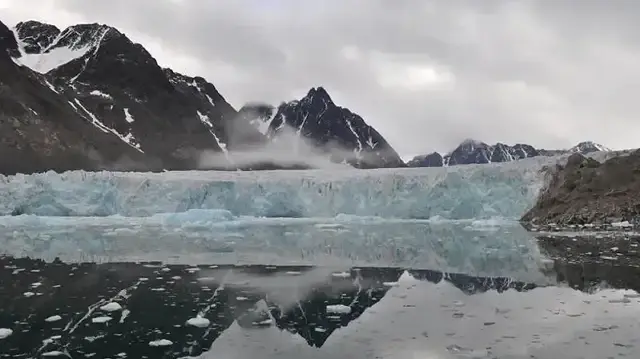Norwegian Arctic fjord absorbs more greenhouse gases than it emits

A new study reveals that Kongsfjorden in Norway's Svalbard archipelago functions as a natural carbon sink, absorbing more greenhouse gases than it releases. Researchers warn that while this discovery offers climate benefits, warming Arctic waters threaten this delicate balance.
Research conducted by the Norwegian Polar Institute has determined that Kongsfjorden, an Arctic fjord in Norway's Svalbard archipelago, serves as a significant carbon sink by absorbing more greenhouse gases than it emits. The study, published in Scientific Reports, utilized advanced measurement models to analyze the fjord's nitrogen and carbon budget over multiple years of water sampling and oceanographic monitoring.
Scientific Methodology and Findings
Scientists combined years of water sampling data from Spitsbergen's west coast with sophisticated ocean models to quantify the fjord's greenhouse gas absorption capacity. Lead researcher Pedro Duarte explained that Kongsfjorden "takes up more carbon and nitrogen than it emits," noting that if similar patterns exist in other Arctic fjords, this would represent positive news for both climate regulation and marine ecosystem health.
Kongsfjorden as Arctic Laboratory
Marine biologist Philipp Assmy, a co-author of the study, described Kongsfjorden as a "living laboratory" that undergoes environmental changes more rapidly than most Arctic fjords. Located near the research community of Ny-Alesund, the fjord's dynamic conditions make it an ideal model for understanding broader Arctic transformations, particularly how ocean circulation patterns influence nutrient distribution and carbon absorption capabilities.
Climate Implications and Future Concerns
The research highlights the crucial role oceans play in climate regulation, with Assmy noting that "the ocean supports us by taking up about a quarter of all greenhouse gases emitted each year." However, scientists cautioned that warming Arctic waters could diminish this natural carbon absorption capacity over time. The Norwegian Polar Institute plans to expand its long-term monitoring program to better understand how climate change affects these vital marine processes.
Reklam yükleniyor...
Reklam yükleniyor...







Comments you share on our site are a valuable resource for other users. Please be respectful of different opinions and other users. Avoid using rude, aggressive, derogatory, or discriminatory language.